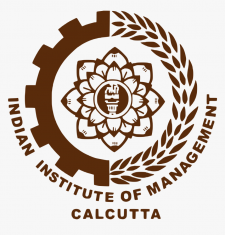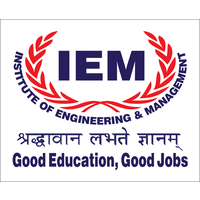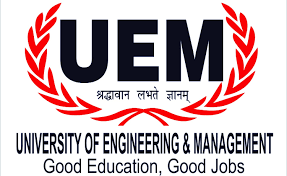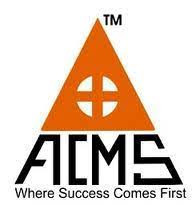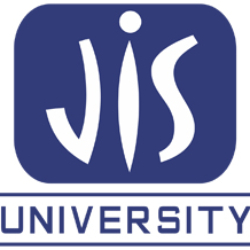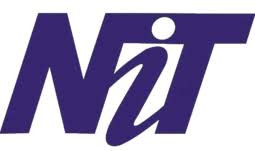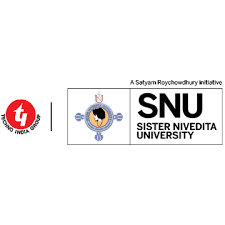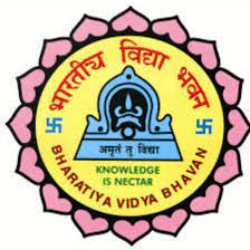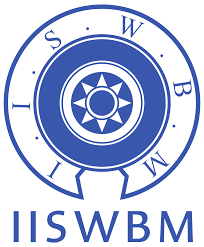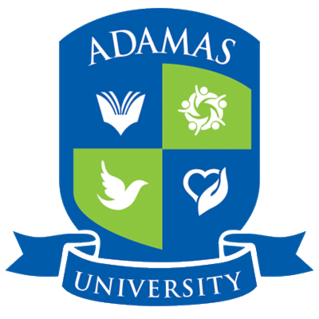An MBA in Kolkata is a wise decision because there are many possibilities for studying an MBA there at affordable costs with excellent returns on investment. Greater corporate interface is also possible because of its special status as the industrial hub and state capital.
Introduction of the course
MBA is a postgraduate degree programme in management and business administration. MBA stands for Master of Business Administration and is open to students from all backgrounds. The MBA course lasts two years and develops a variety of talents, including managerial skills and leadership abilities.
From marketing to tourism and healthcare, every economic sector now requires experienced managers. As a result, graduates can find a variety of MBA professions, including Finance Manager, Marketing Manager, Media Planner, Product Manager, and Sales Manager.
MBA Course Highlights
|
Particulars |
Details |
|
Name of the Course |
MBA |
|
Full Form |
Master of Business Administration |
|
Course Level |
Postgraduate |
|
Entrance Examinations |
CAT, MAT, XAT, ATMA, CMAT, GMAT, NMAT |
|
Types of MBA Courses |
Full-Time MBA Part-Time MBA Distance MBA Online MBA Executive MBA Integrated MBA |
|
MBA Course Duration |
Full-Time MBA: 2 Years Part-Time MBA: 2-3 Years Distance MBA: 2-3 Years Online MBA: 2-3 Years Executive MBA: 15-18 Months Integrated MBA: 5 Years |
MBA Eligibility Criteria:
Depending on the type of Master of Business Administration or MBA education, different MBA qualifying requirements apply. B.Tech, BBA, BCA, B.Com, BA, and BSc graduates can pursue an MBA programme, which is one of the most important degrees for the majority of managerial-level employment in all industries and sectors.
Who can do MBA?
Students from any field, including science, humanities, and commerce, can pursue a Master of Business Administration or MBA programme. In this part, we discussed the MBA eligibility requirements:
- Applicants must have completed or be in the final year of a bachelor's degree in any field with a minimum duration of three years.
- B.Tech, BBA, B.Sc, BA, and B.Com are some of the most popular bachelor's degree degrees.
- Candidates should maintain a minimum of 50% throughout their bachelor's degree. (For IIMs, it is 60%).
- Applicants must have received at least 60% in their 10+2 from a recognised board in India.
- Candidates must have passed the entrance exam and meet the MBA cutoff requirements set by the MBA colleges.
List of MBA Specialisations
|
MBA Artificial Intelligence |
|
|
MBA Data Science |
|
|
MBA in Rural Management |
MBA Hospital and Health Care Management |
|
MBA in Digital Marketing |
|
|
MBA in Sustainability Management |
MBA Textile Management |
|
MBA in Pharmaceutical Management |
MBA FinTech |
|
MBA in Communication and Media Management |
MBA in Banking & Finance Management |
|
MBA in Data Analytics |
MBA in Logistics Supply Chain Management |
|
MBA Port and Shipping Management |
|
|
MBA Banking and Insurance |
MBA Capital Market |
Core MBA Subjects/Syllabus Semester-wise
The MBA education lasts two years and is divided into four semesters plus an internship. In the table below, we have listed MBA courses and their subjects, which are divided into four semesters.
|
Semester I Organisational Behaviour Quantitative Methods Managerial Economics Business Communication Marketing Management Financial Accounting
|
Semester II Business Research Methods Management Science Economic Environment of Business Production Operations and SCM Organisation Effectiveness and Change Operation Management Legal Aspects of Business Management Accounting |
|
Semester III Supply Chain Management Financial Modelling Strategic Management Business Intelligence Marketing Research Managerial Economics Corporate Governance and Business Ethics Corporate Finance 2 |
Semester IV Project Study International Business Environment Strategic Management Elective Course |
MBA Entrance Exams
Admission to MBA courses is determined by the cut-off score obtained in MBA Entrance Exams. The final admission decision is based on the candidate's MBA entrance exam percentile, performance in the MBA GD-PI Rounds, and overall academic achievement.
National Entrance Test: Many entrance exams are held at the national level for MBA admission. CAT, MAT, XAT, ATMA, CMAT, and IIFT are some of the most popular national MBA entry tests.
State-level MBA Admission: In addition to national-level MBA entrance exams, many states have their own MBA entrance exams for admission. Qualifying individuals can enrol in any of the participating colleges within the state. MAH MBA CET, OJEE MBA, TANCET, APICET, and KMAT are among the top state-level exams.
University Entrance Test: Some reputable MBA schools offer multiple university-level examinations to admit their students. Such university-level examinations include NMAT/NMIMS, CUSAT, SNAP, and IPU CET.
MBA Entrance Exam in Kolkata
In Kolkata, there are ninety-five top MBA colleges. Nine of these universities are owned by public or government entities, while the remaining 70 are privately held. The entrance examinations that top MBA schools in Kolkata accept the most are CAT and MAT, JEMAT, CMAT, XAT, ATMA, NMAT, AUAT, GMAT, PGCET, etc.
Employment and career opportunities
Many students pursue MBA degrees to secure a job after finishing their education. Many MBA graduates find jobs in a variety of fields, including human resources, finance, and operations.
Top Recruiters Hiring MBA Graduates
Every top MBA school has a strong placement history. These MBA schools' placement seasons offer competitive final placement salaries, ranging from Rs. 5 to 30 LPA. Large Indian firms run numerous industrial plants in Kolkata that produce anything from electronics to jute. In Kolkata, the IT sector has also seen a sharp rise in MBA placements. Kolkata is home to the largest MBA recruiters in the consulting industry, including Deloitte, Ernst & Young, Frost & Sullivan, Hewitt Associates, SAP, TCS, and Wipro. There have been many MBA placements in Kolkata, and the MBA schools there provide career-focused MBA courses. The number of colleges is growing annually.
|
Avendus |
Deloitte |
HDFC |
|
ICICI Bank |
JP Morgan Chase & Co. |
Mahindra |
|
McKinsey & Company |
Reliance |
Samsung |
|
ITC |
Tata |
TAS |
|
Larsen & Toubro |
EXL |
HSBC |
|
Goldman Sachs |
Nestle |
Vodafone |
|
Tata |
Microland |
Accenture |
|
Amazon |
Wipro |
Aditya Birla Group |
|
Microsoft |
Scope of MBA
An MBA degree opens up a wide range of employment possibilities in both the private and public sectors, from marketing to tourism and healthcare. Graduates with remarkable knowledge and skills can advance to junior, senior, and executive positions in the business and public sectors after completing their MBA. Jobs in this industry can be extremely gratifying and satisfying, especially for graduates from top business schools. Even without a college degree, people with the correct skill set and competence can easily get work in the best corporations and organisations.
Depending on their specialisation, skill set, and knowledge, individuals can pursue highly profitable employment opportunities after completing their MBA, which not only offer high salaries but also other remarkable benefits.
FAQs
1. What is the average MBA course fee?
The average MBA course fee ranges between INR 10 - 25 lakhs. The average fee for MBA courses at IIMs is under INR 30 lakhs and for IITs it is under INR 10 lakh. Students can pay MBA fees in instalments semester-wise. There are various MBA scholarships and education loans available to pay MBA fees.
2. What are the top MBA colleges in India?
IIM Ahmedabad, IIM Bangalore, IIM Kozhikode, IIM Calcutta, IIT Delhi, XLRI Jamshedpur, IIM Lucknow, and IIM Mumbai are the top MBA colleges in India as per NIRF rankings in 2023.
3. What is the general MBA admission process?
MBA admission takes place through entrance exams. The final admission is based on the candidate’s percentile in the MBA entrance exam, performance in group discussion and personal interview rounds and overall academics.
4. Which MBA colleges conduct their own MBA entrance exams?
Colleges like IIFT, TISS Mumbai, IBS, and Symbiosis International University conduct their own MBA entrance exams for admission.
IIFT - IIFT MBA entrance exam
IBS - IBSAT
Symbiosis International University - SNAP
5. What is the difference between an MBA and a PGDM?
An MBA is a degree, but a PGDM is a diploma programme, and that is the fundamental distinction between the two. PGDM programme is offered by stand-alone institutions or autonomous bodies, whereas MBA is offered by universities or MBA colleges affiliated with top management universities.

